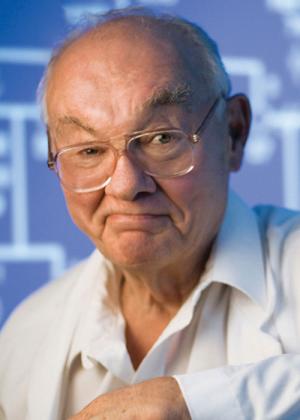Often hailed as one of the fathers of cancer genetics, Henry Lynch, M.D., took a decidedly unusual path to the pinnacle of his profession. A high school dropout who fudged his age to serve in the Navy during World War II, Dr. Lynch briefly engaged in professional boxing after the war. Later, he got his high school equivalency degree and moved on to college and a master’s degree in clinical psychology. He left his work on a doctorate in human genetics to complete a medical degree.
Early in his nearly six-decade career, Dr. Lynch, the director and founder of the Hereditary Cancer Center at Creighton University School of Medicine in Omaha, theorized that some cancers have a genetic cause—a risk passed down in cancer-prone families from generation to generation. The idea ran counter to the prevailing notion in the 1960s and 1970s that the environment lay at the root of most malignancies, not hereditary DNA-damage. But Dr. Lynch persisted for years, studying the medical histories of some 3,000 families, tracking and documenting cancer’s spread between successive generations.
In 1984, that painstaking research paid off. The most common form of heritable colorectal cancer, hereditary nonpolyposis colorectal cancer, was renamed “Lynch syndrome” after him. In addition, he is credited with helping to identify ovarian-breast cancer syndromes that arise from mutations in the BRCA1 and BRCA2 genes.
A champion of genetic screening up to his death in 2019 at age 91, Dr. Lynch played a key role in preventive strategies that have saved thousands of lives over the years. Perhaps fittingly, the first-ever vaccine trial against a hereditary cancer will be directed against the one that bears his name. The study to prevent Lynch syndrome is expected to begin in 2022.
To learn more about Dr. Lynch, read this profile in Gastroenterology.

